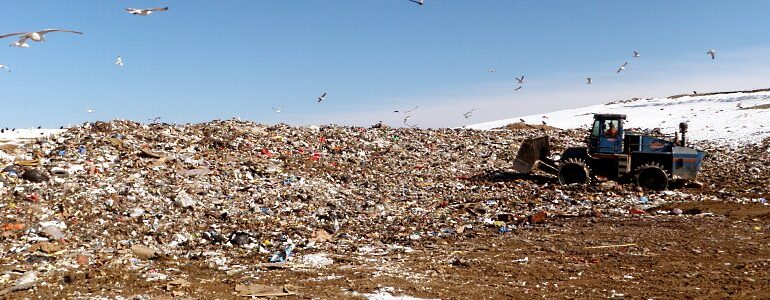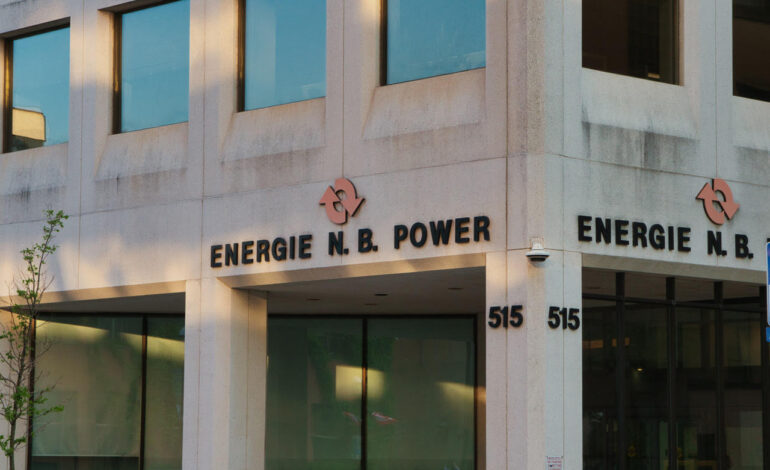
By Brian Owens, Reporter
New Brunswick aims to have a province-wide program for diverting organic waste from landfills preventing related greenhouse gas emissions by the end of 2028, according to the government’s Strategic Action Plan for Solid Waste. But some at the regional service commissions that manage the province’s landfills worry that any such program will be expensive and may not lead to much improvement in emissions.
“The primary focus is reducing greenhouse gasses, which is a great goal, but as a strategy organics diversion is not the most effective approach,” said Brett McCrea, chief operating officer of the Capital Region Service Commission. “It’s very expensive, and all of our landfills already have gas mitigation or utilization processes in place.”
The concern with organic waste, such as kitchen scraps, is that when it is buried in a landfill it produces methane as it decomposes, which is up to 80 times more potent a greenhouse gas than carbon dioxide. Left to compost in the open air, however, only carbon dioxide is produced, so composting is a more environmentally friendly way of dealing with organic waste.
Currently just two of New Brunswick’s 12 regional service commissions offer curbside organics diversion, the Fundy Regional Service Commission and Southeast Regional Service Commission.
Marc-Andre Chiasson, communications officer for the Southeast Regional Service Commission, said their three-bag program, in which people separate waste into organics, recycling, and everything else, started in 2016 as a way to extend the life of the landfill by reducing the amount of material going into it. Organics are collected every week, with recycling and other waste alternating weeks. The compost created is used by the municipality and sold in bulk to landscaping companies, which Chiasson said pays for most of the cost of running the composting facility.
But Hollis Bartlett, executive director of the Southwest New Brunswick Service Commission, said programs like that may not be appropriate in every part of the province. The cost, and extra carbon emissions from running a fleet of diesel trucks on another collection round, may mean there is no net benefit in terms of greenhouse gas savings. And SNBSC’s landfill at Hemlock Knoll will still end up with lots of organic waste in it.
“Our landfill also takes in garbage from the United States, and we can’t control what they put in it,” he said.
Most landfills in New Brunswick deal with methane by collecting it and using it to generate electricity which is sold to NB Power. Hemlock Knoll, however, does not generate enough gas and is too far from the power grid to make that feasible, said landfill manager Mike Young, so the gas is burned off instead.
Young said there are other options for dealing with organic waste that may make more sense in this region.
“We’ve been through this before about 20 years ago. We did some studies and ended up with a big push on backyard composting, giving out free composting bins,” he said. “That worked pretty well.”
Jennifer MacNeil, a spokeswoman for the Department of Environment and Local Government, said the specifics of the plan are still being developed and consultations will begin this fall.
But she declined to answer specific questions about how much greenhouse gas savings are expected to be realised from an organics diversion program, or whether those savings take into account the potential extra emissions from additional trucks picking up and delivering organics to landfill.



